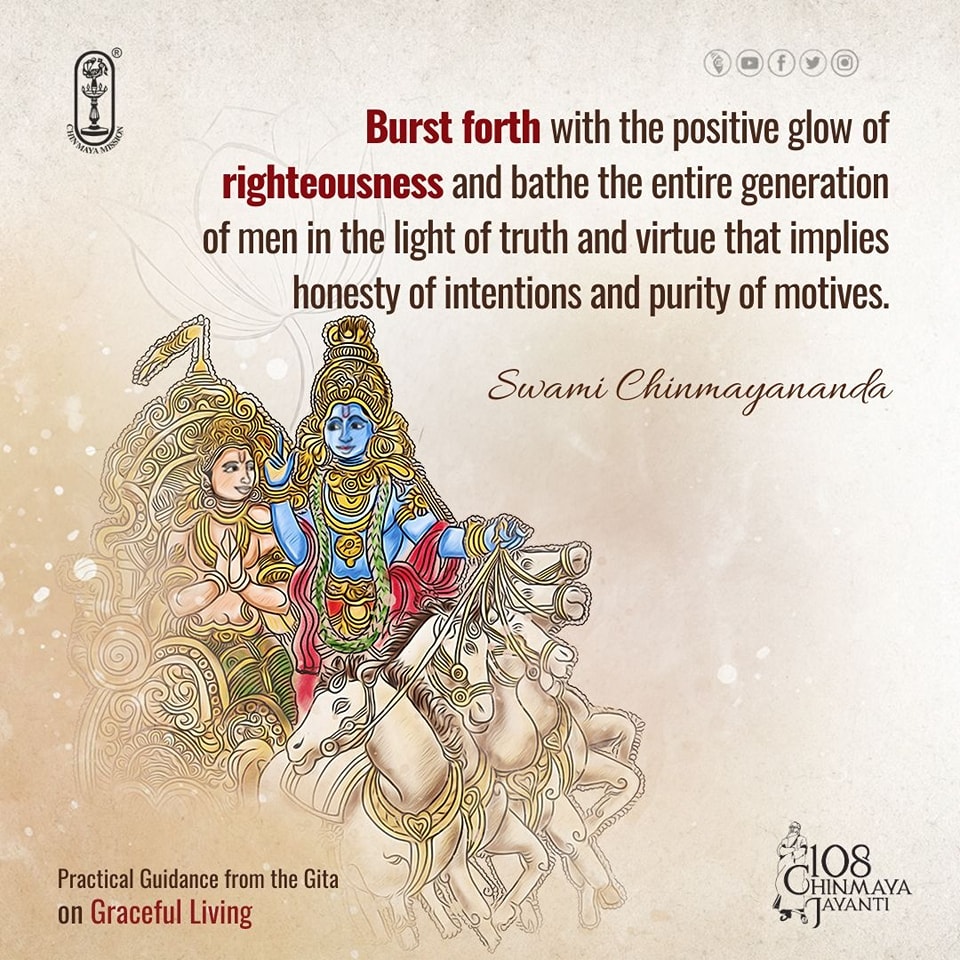The Relevance of the Bhagavadgita to Humanity 2.5 Swami Krishnananda.
=====================================================================================
Saturday 23, Mar 2024 07:30.
The Relevance of the Bhagavadgita to Humanity
The First Six Chapters of the Bhagavadgita:
Chapter 2: The Sabha Parva of the Mahabharata-5.
===================================================================================
Now I am digressing from this field to tell you the point that I was driving at, that we have various potentialities and tendencies in place. Why do people behave in different ways, and not in a uniform way? Why should the Pandavas be like that, and the Kauravas be like that? Why should I be like this, and you be like that? Why is this like this, and that like that? It has to be like that because of the particular stage of evolution of the psyche in which one finds oneself at a given moment of time. It does not appear that everything is manifest at one stroke. There is what is called the system of the degrees of evolution; therefore, it is impossible for us to expect all humanity to entertain a single thought always, though that would be a happy thing. Let all people think only this thought, and one thought only. Why two thoughts? Then all the human beings will be one person only. That would be a happy state of affairs. This cannot happen because of the varieties in the levels of expression of the psyche, and these are the reasons behind confrontations, conflicts, and irreconcilable differences and tendencies.
So we are capable of differences also, and we are forced to work on the level of difference only, due to the fact of each one being ourselves, each one of us being in a different state of evolution. Clash takes place. I cannot agree with you, I am jealous of you, etc. This was what happened when the children grew up in the palace of the great king. They did not like each other. This is the Adi Parva of the Mahabharata. They started scratching, showing tooth and claw, hurling somebody down into the dust, and even attempting to finish off a person by hook or by crook.
Schoolboys are notorious in such behaviours even these days. Very unreasonable, rowdy behaviour, and for a little, meaningless, insignificant cause, they can kick up a huge row, and a war can take place. This happens in schools and colleges. Sometimes students even die in this scuffle, for nothing. It can be cricket or football, or even a drinking tap, a place to sit at a desk in a school, or any blessed thing. These potentialities, the manner of their expressions, are majestically described in the Adi Parva.
But we recover ourselves. A little sense arises in us. We get educated and we try to reconcile our differences. It is true we live in difference. One cannot agree with the other entirely. This is perfectly true, and everyone knows it. No person anywhere can entirely agree with another. Yet, we make a concession. “It is believed that this kind of life is no life at all. Total disagreement always, in every way, does not mean anything. So, in spite of the fact that there is a basic difference of attitude, a kind of concession is made by each one so that they may live a life of community. I shall share with you, and you share with me. I shall live happily, and you also live happily. How can we live like wolves? It is not possible.”
This state of complacence and tentative satisfaction by mutual concession, a feeling that everything is all right, is a very deceptive feeling. It was a politically manoeuvred satisfaction, and we cannot trust that kind of truce and that kind of agreement for a long time. Nevertheless, we cannot also distrust it. We have to say, “Yes, I think we have come to a conclusion, and an agreement has been arrived at. We shall not anymore be contending parties. We have shared our ideas and our property. We shall be friends because it is necessary for you to be in peace, and it is necessary for me also to be in peace.” Yes, it is okay for the time being, but inwardly I am jealous. Why should I have to make a sacrifice for this person? I shall see that this person is put down immediately. I have made a sacrifice, and it was done because of the necessity to bring about a kind of peaceful atmosphere, but I don't like it. Why should that person have anything? I shall have everything.
*****
Continued
===================================================================================










Comments